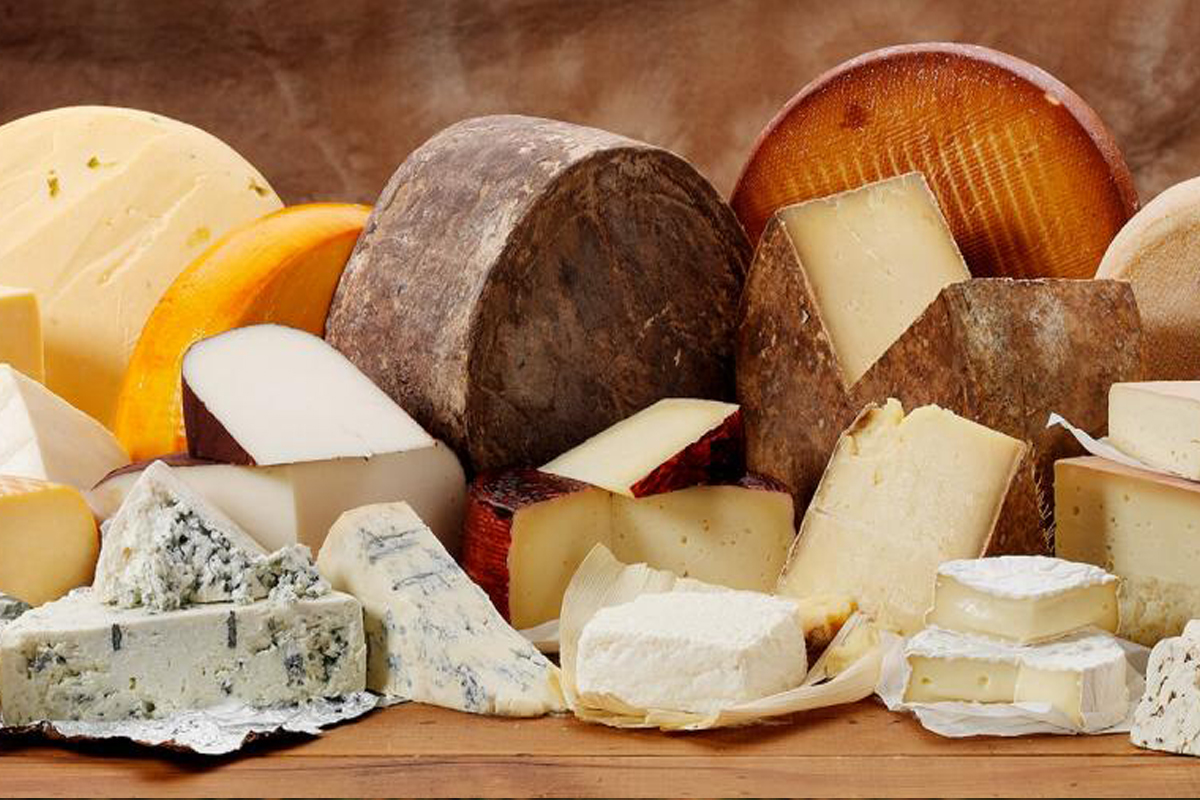“So I can keep putting cheese on my salad? Hallelujah!”
All this time you considered cheese to be your guilty pleasure…
But a new study published in the European Journal of Nutrition suggests you might be able to eliminate the guilty part of that pleasure.
Between the anti-dairy folks, the vegans, and those who are just terrified of calories and high-fat foods, cheese has been demonized over and over.
I’ve even heard people apologize that they sprinkled goat cheese on the salad they’re serving at a dinner party—as if they should have left it on the side in a little bowl with a label that says “optional.”
One of the anti-dairy arguments I’ve often heard from Paleo-enthusiasts and vegans alike is that humans are the only mammals who drink milk as adults (let alone consume cheese).
I’ve always thought that argument was flawed, though, as humans are the only ones who have access to dairy in their post-breast-feeding years.
Is a full grown cat going to turn down a bowl of milk? Didn’t think so!
The Study Details
The study discovered that people who consume cheese have a 14 percent lower risk of heart disease and a 10 percent lower chance of having a stroke.
This was determined through 15 observational studies that followed 200,000 people for 10-plus years.
Researchers surmise this is likely due to the calcium, protein and probiotic qualities found in cheese, which ultimately trump the alleged hazardous effects of cheese’s saturated fat.
That being said, while it might be OK to keep putting cheese on your salad, we are NOT suggesting you should sit around pounding a ring of Brie cheese on a nightly basis.
(For the record, I also suggest this when it comes to nuts. People are told nuts are healthy, so they proceed to throw back handful after handful).
So what’s a healthy amount of cheese?
The people in the study who were kept heart disease and stroke-free consumed in and around 40 grams of cheese a day, which essentially equates to a couple slices or so.
So, yes to goat cheese on salad or parmesan sprinkled on some meatballs, but no to inhaling half a pound of smoked aged cheddar.
While we’re at it, if you’re going to eat cheese, let’s discuss the best kinds of cheeses to choose:
Mark’s Daily Apple has some great advice
The best cheese:
1. Raw, grass-fed cheese:
Raw—meaning made from raw milk that has not been pasteurized—grass-fed dairy products have high levels of conjugated linoleic acid (CLA), which have anti-cancer properties.
Raw cheese is hard to find (grass-fed is more prevalent), but you can often get raw, grass-fed cheese at specialty grocery stores and some farmer’s markets.
Or in Europe, if you’re there anytime soon. Brie and Camembert are often found to be raw and grass-fed, so that’s a good place to start.
2. Goat and sheep:
The protein structure in goat and sheep cheese is different from other animal’s milk. The fat globules in goat’s milk are smaller and easier to digest.
Some people who are sensitive to cheese find they can tolerate goat and sheep cheese better than cow’s milk cheese because they find it to be easier on the gut.
Also, the milk protein (casein) in goat’s milk doesn’t have the same inflammatory effects as cow’s milk, nor does it contain the same allergenic properties.
And some research has even suggested that compared to cow’s milk, goat’s milk increases the body’s absorption of iron.
Although when we think of goat cheese, we often think of the soft spreadable stuff, there are tons of other firm options out there if you’re into harder cheeses.
Goat Gouda is particularly delicious! It’s full of flavor, and the longer it sits the firmer and tastier it gets. Goat feta is another great option.
And just in case you didn’t figure this out on your own…
The most important cheese to avoid is the super processed stuff: American cheese, Cheez Whiz and Kraft singles are definitely OUT!
And if you’re one of those lazy people who buy bags of pre-grated cheese, STOP.
It’s usually way more processed. Often these “cheeses” aren’t even real cheese and they contain way more preservatives and emulsifiers so that the fake cheese acquires that meltable quality we like so much.
Mmmmm cheese: Does the body good. But keep it in moderation, folks!







